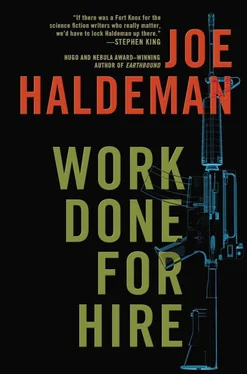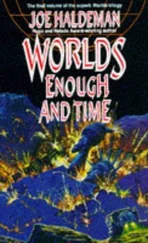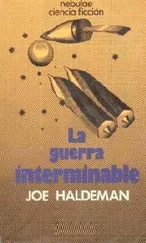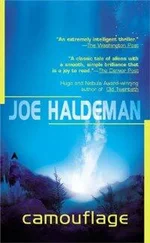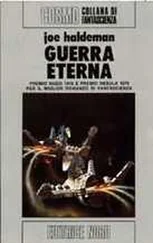“I didn’t ‘squeeze’ it. I just pulled it.”
“Yeah, and the nose went up a little. But you’re just trying to hit the wall. Do it again?”
This time she held it level and the nose stayed down when it snapped.
“I never used one in combat,” I said. “The Glock, we had one day of disassembly and cleaning, and a half day on the range, mostly safety procedures. I was never really issued one.” I did carry an automatic for a week, when I was TDY’ed to Shiraz, but I was advised to keep it inside the shrink-wrap so I wouldn’t have to clean it. Not exactly hardcore.
“Well, you’re a boy; you have it in your blood.”
“You never played with cap guns as a kid?”
She laughed and it felt good on my chest. “Mom would have a heart attack.”
“With dear old Dad a soldier?”
“Especially.” She raised the back of my hand to her lips and kissed it. “He’s so jealous of you.”
“Getting shot. He can have it.”
“You know what I mean.” She set the gun down on top of the TV and rotated inside my arms. Her voice was muffled in my shoulder. “Is it true you soldiers are really good lovers?”
“I think you mean bicycle riders.” She smelled so good. “Soldiers can get it in the hole they’re aiming at, usually. Bike riders know to hug the curves, though.”
“Idiot,” she said, and pulled down my shorts.
The road made us go northward for a couple of hours, which annoyed me in an obscure way. If we just wanted to go to Key West, we could’ve flown, or even hopped a train in New Orleans. False names, tickets bought with cash; in one day we’d be off the grid and almost off the map. But we’d also be, to complete the trio of clichés, at the end of the line. And not that hard to trace.
If they did follow us to Key West, we’d be cornered. Just as true with bicycles as a train or plane, but maybe after that much pedaling, we’d be in good enough shape to dive in and swim for Cuba.
I hadn’t been to Key West since I was a little boy, but from what I heard it sounded like a good place to drop out of sight. Like New Orleans, it had lots of off-the-grid work for low pay, though in fact we did have enough cash to live on for a few months, a year if we were parsimonious. Best to find a little room and disappear into it. I could write well that way, I thought, and Kit was content to read and draw.
Give “the Enemy” time to lose interest in me. We started calling them that. Sometimes you could hear the capital E in both our voices.
Agent Underwood hadn’t called. Just before noon, I called her number; someone said she was out of the office and would call tomorrow morning. That was okay by me. I can handle truck traffic, and I can handle spies, but I’d just as soon not do both simultaneously.
After a day of pretty serious riding we were dead tired. We took a couple of McDeathburgers to the Holiday Inn and almost fell asleep during the thrill of eating them. I slept ten hours, about four more than usual, and woke feeling like I’d come in second best in a bar fight. Some hard roads, and I’d been off the bike for a couple of weeks.
Holiday Inn coffee is nontoxic and the machine was quiet enough not to wake Kit. In the pool of light from the desk lamp I made a list of the facts we knew about the Enemy, and the assumptions we held. Sometimes the distinction between fact and conjecture was not clear.
1. They were not “the government” in any conventional sense. Sara Underwood would have acted differently if she worked with the Enemy. (Maybe some sinister cabal of meta-spies like in the movies. Not likely.)
2. They nevertheless seemed to have resources comparable to a government agency’s. But Kit pointed out that this might not be true if, for whatever reason, I was their only project. If you really wanted to fuck with one person’s mind this way, it wouldn’t even be a full-time job.
3. This raised the interesting possibility that I might be somebody’s hobby. An agent like Blackstone could be a one-man “Let’s drive Jack Daley insane” club, working a couple of hours a week. But why would he?
4. There might be an army connection. They had easy access to my records, and of course had plenty of M2010s lying around.
5. They were watching us—and not being obvious about it. We’d been on the lookout since Iowa City, often on deserted back roads, and hadn’t seen anything.
6. It seemed likely they could track me from a distance. Maybe a tracer implanted when I had surgery in Germany.
7. They were serious enough to kill a federal agent. They used a rifle like mine, possibly. Setup or coincidence? An unrelated murder? Sure, there are snipers everywhere.
But it all pointed back to the big question: Why me? There were probably a hundred thousand people who could shoot a rifle as well as I can. A small fraction of them would probably shoot a stranger just for the thrill, or for the hell of it, let alone for a roll of G-notes. (Thriller writers sometimes assumed there were people on the government payroll who would do this sort of thing, but I always doubted they could keep it secret. A civil servant whose morals allowed him to murder on assignment could also be bought by a tell-all journalist.)
When Kit got up she read over the list. “Number 6, the implant. I guess we’ll find out about that. If they show up now, they must be physically tracking you.”
I thought for a second, and agreed. “In a city, even New Orleans, we’d be on security cameras enough for them to follow us by face recognition software. They caught those spies that way in Chicago.” It had been fodder for a lot of Big Brother Is Watching You editorializing. The Ramirez couple had even had cosmetic surgery, but it didn’t fool the software. They should’ve left the city instead.
Florida would be safe from that. Their courts had followed North Dakota’s lead, and declared the ubiquitous camera network an unreasonable invasion of privacy.
“But New Orleans is still bothering me,” I said. “Suppose that is why the cops picked me up—computer sorting of routine security images. That’s not the real mystery—I mean, hell, we were on the run. Using false identities, working for cash. They might have picked me up on general principles.”
She nodded. “And so?”
“So the real mystery is not why they picked me up, but why they let me go! The cops talked to someone back at the station, on the car radio, and immediately pulled over and uncuffed me and let me go. What did someone, headquarters, say to them?”
“Maybe that what they were doing was illegal. They can’t just grab someone off the street.”
“Yeah, but they can , if you’re a criminal. They definitely were sent to pick me up, or us. I didn’t think fast enough. I should’ve asked to see a warrant or something.”
“They’d just invoke Homeland Security.”
“But how could they? Homeland Security didn’t know where we were! I hadn’t talked to the DHS woman for two minutes before the god-damned cops showed up!” Though maybe two minutes would be enough, if we were on the right list.
She got up and split the remaining coffee between us. “Maybe it was somebody else in the DHS. They’re not just one woman with a phone up in Illinois.”
“Yeah, and it may not have been Homeland Security business at all. Maybe the guy who sold me the gun ratted on me.”
“Yeah,” she said, glowering theatrically. “Ya shoulda plugged the sumbitch.”
“Next time, Muggsy.” We both laughed.
We dozed till noon and then picked up a cheap cell at a convenience store next to the motel, just to make two calls. Didn’t want our families to worry enough to call the authorities—all we needed was state troopers from Iowa to Mississippi sharing their databases, looking for us as missing persons.
Читать дальше
